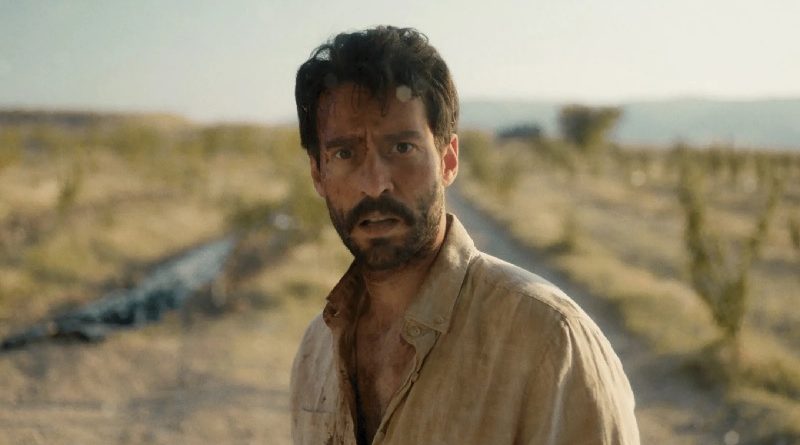Movie Review: The Things You Kill
Screened at Stockholm International Film Festival 2025
One-liner: A compelling premise, strong lead performance and sharp screenplay are subverted by a bold make-or-break handover in this crime drama thriller.
The Things You Kill is a crime drama thriller from writer-director Alireza Khatami centred on a university professor whose ailing mother dies under suspicious circumstances. Unable to let go of her untimely demise, he convinces a drifter to help him exact revenge on the people he believes are responsible. This contemplative and pensive drama begins with a dedicated son discovering that things aren’t adding up in the days leading to his mother’s death.
Dealing with difficulties at home, he begins to realise that there may be more nefarious forces at play. This premise is promising and the setup is elegant and intriguing as we are slowly immersed into this man’s world, trying to make sense of the strained family dynamics, particularly with his father. Moving between his tenuous role at work, his marriage and his smallholding, we get a sense of this world and the intricacies of his pained existence.
Things begin to change when an enigmatic outsider enters the picture, wandering onto the smallholding and making numerous suggestions for improvement that make it almost impossible for him not to land a job. In a similar vein to Strangers on a Train, the idea of someone external to the situation suddenly presenting an opportunity drives the plot. The Things You Kill may be a riff on the screenwriting concept of “killing your darlings,” but with a tongue-in-cheek approach. This crime drama is captivating and compelling in the first half as we become accustomed to a strong performance from Ekin Koç as Ali, whose driving force and consternation become the brooding undercurrent of the film.
*spoiler alert* However, a bold directorial decision subverts this dynamic and, while refreshing, causes a great deal of distraction. Much like Heath Ledger’s replacements in The Imaginarium of Doctor Parnassus, a sudden cast swap presents a number of hurdles. This handover is quite abrupt; in a similar vein to Fight Club, the film hinges on this jump and our willingness to roll with it. Yet, while the twist in Fight Club happened near the end, making it easier to accept, the twist in The Things You Kill happens at the midway mark. It’s similar to The Place Beyond the Pines in this respect, where the narrative diverges like two separate films.

“Kill your darlings, darling.”
The shock of the change is not overly dramatic in terms of representation, but it is disconcerting regarding our established understanding of this carefully calibrated world. The fact that other cast members simply accept this change without question becomes problematic, leading one to suspect the film was salvaged from a real-life production difficulty. Whether due to a possible death or creative differences, this ambitious move does add a fresh spin on the story, but its efficacy and consistency are severely impaired. One of the biggest difficulties is that Ekin Koç delivers such a strong performance that the intensity drops when Erkan Kolçak Köstendil is suddenly tasked with taking the reins.
After being so utterly convinced of this world, having it shaken up in what would ordinarily be a high-concept Freaky Friday scenario is a deal breaker in many ways. Moving at a steady pace as a slow-burning crime drama with deep social insights, this change disrupts the overall flow of the picture, enabling some rather poetic moments that seek to adjust the film’s tone and established rhythm.
For some, this divergent concept may be too distracting to recover from and, while curious, undermines the foundational work of The Things You Kill. For others who may be more open to this kind of innovation, the concept may prove entertaining and well-executed for such an ambitious call, possibly creating more dimension in terms of duality. Reducing it to a mere bait-and-switch would be unfair to the filmmaker’s vision.
While Khatami takes a gamble, this divisive element will largely dictate your overall enjoyment of The Things You Kill. Leaning into the conventions of social crime dramas, the first half is a fine film with some wonderful comedic notes and beautifully realised scenes. The darker second half, however, ushers in a great deal of inconsistency and threatens to derail this fine production by taking too many chances with its sudden switch and mirage of a resolution.
The bottom line: Discordant





